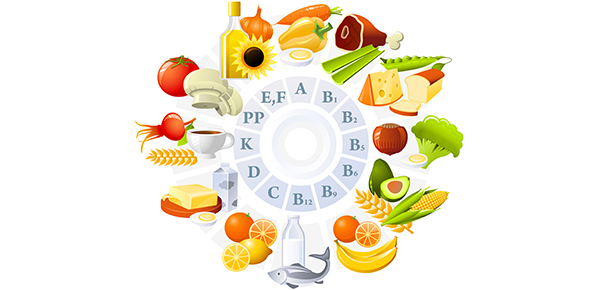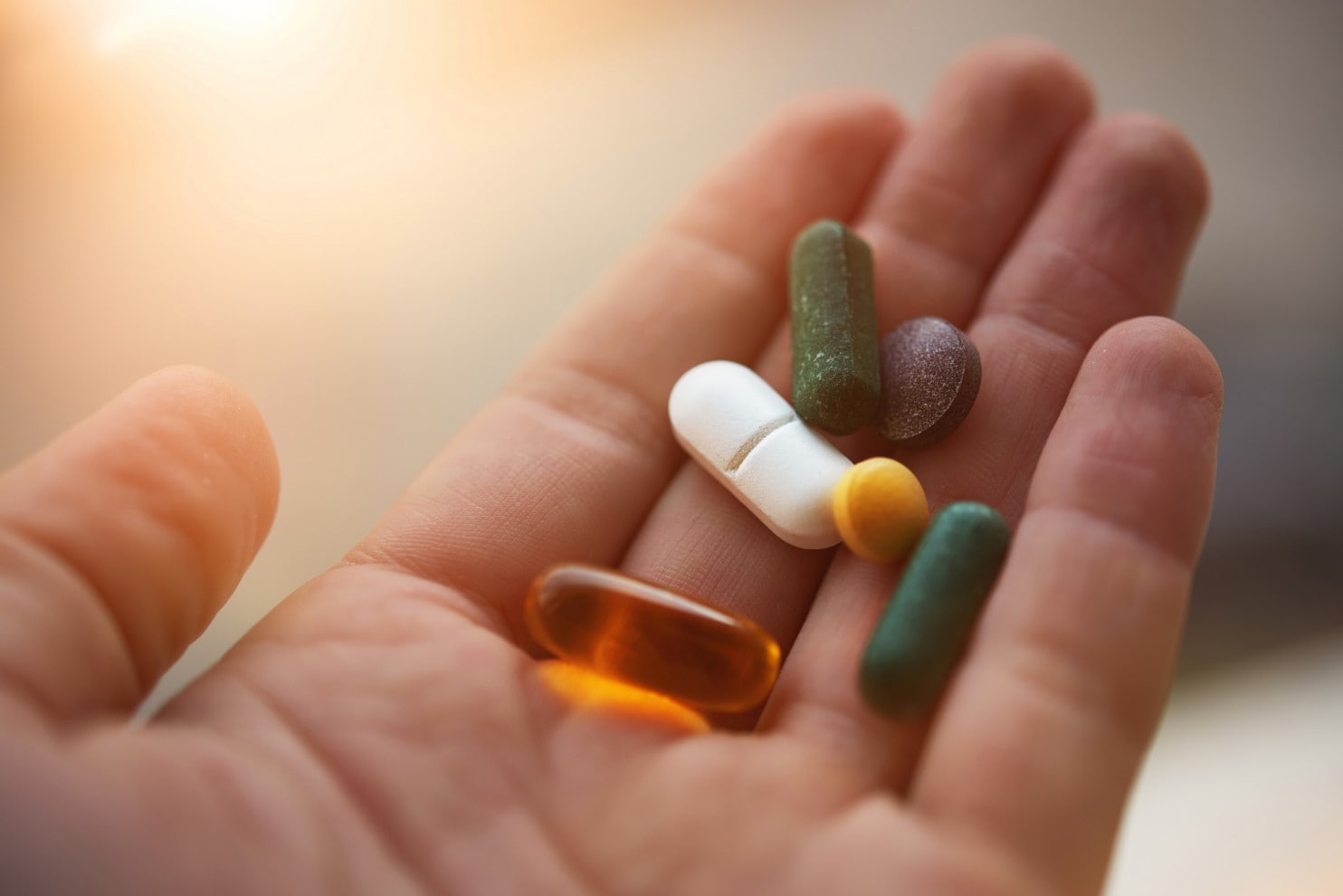A well-balanced diet containing all the essential nutrients from different food groups like fruits, vegetables, whole grains, proteins and dairy is the best way to achieve and maintain optimum health. But the busy schedule and a fast-paced lifestyle don’t permit us to eat the right foods every day that eventually leads to deficiency and diseases. It is necessary to make up for these deficiencies with supplements. Vitamins and nutrient supplements in combination with the diet helps to maintain health and wellness when we are not able to maintain ideal eating habits.

8 Essential Vitamins and Supplements for Overall health
The requirements for vitamins and nutrients vary from person to person, but there are certain essential vitamins and minerals that are required for healthy functioning of the body in general.
Vitamin A
Vitamin A is the most important vitamin for the human body that has multipurpose functions for improving overall health. Vitamin A is a substantial antioxidant that aids to boost the immune system, improve vision, reduce the risk of heart diseases and slow down skin aging. Vitamin A can be easily found in meat, fish and dairy products along with the beta-carotene present in carrots, sweet potatoes and green peppers that are converted into vitamin A in the body. You can also get your daily supply of vitamin A from supplements and capsules. Vitamin A in large doses can be toxic; therefore it is best to stick to the recommended daily dosage that is 2300 international units (IU).
B Vitamins
Next in line are the 8 B vitamins that are essential for maintaining metabolism and muscle tone and maintaining the functions of the mind. Vitamin B9 or folic acid is responsible for keeping the red blood cells healthy and providing protection against birth defects and cancer. B-complex vitamins also provide energy and reduce the effects of stress on the body. In most cases, people can get their daily dose of B vitamins from foods like whole grain bread, beans, asparagus and fortified breakfast cereals. People can take 400 micrograms (mcg) of folate on a daily basis.
Vitamin C
Vitamin C is often referred to as the cure-all vitamin that not only prevents common cold but is also essential for normal growth and development. The antioxidants in vitamin C help to boost the immune system, prevent prenatal problems and eye diseases and helps to heal wounds faster. Citrus fruits, berries, green peppers, broccoli and other colorful vegetables are packed with vitamin C, and most people don’t need to opt for supplements. But the recommended daily dosage of vitamin C is 75 milligrams.
Vitamin D
Vitamin D supplementation is necessary because people are often deficient in this vitamin. It is necessary for optimum absorption of calcium that is the building block of strong and healthy bones. Research shows that vitamin D deficiency can increase the risk of heart diseases, cancer and cause cognitive decline. The sun is the best source of vitamin D, and it is recommended to get at least 30 minutes of direct sun each day. Foods such as fish, egg yolk and cheese contain small amounts of vitamin D. Vitamin D deficiency is common and therefore, is best to take a supplement after consulting a doctor or physician. The recommended daily measure of Vitamin D is 1000 to 2000 IU.
Magnesium
Magnesium deficiency is one of the widespread deficiencies in today’s time. Although, magnesium is abundantly available in the soil and well water, but conventional farming methods strip this mineral from the soil. Magnesium is one of the crucial minerals for the body that is required in more than 350 enzymatic functions that regulate metabolism, blood pressure and sleep cycles. Sufficient magnesium in the body can prevent cardiovascular diseases, osteoporosis, type 2 diabetes and migraine headaches. Leafy green vegetables, seaweed, kelp and nettle are good natural sources of magnesium. But if you are deficient in this mineral then you can take a supplement of 300 to 400 mg per day after consulting a doctor.
Fish Oil
Fish oil provides a unique combination of antioxidants and omega 3 fatty acids (EPA and DHA) that is one of the best combinations to improve overall health. The antioxidants help to reduce inflammation in the body and promote the formation of healthy cells, hormone and brain development. Fish oil is especially important during pregnancy and for children when their brains are still developing. You can enjoy fatty fishes such as salmon and mackerel 2 to 3 times a week or opt for a fish oil supplement. The recommended daily dosage of fish oil is 1000 to 1200 mg.
Probiotics
The next important supplement that is vital for overall health and wellness is probiotics and our diet is often missing or insufficient in this particular element. The effective bacterial strains present in the probiotics helps to restore the healthy balance of gut bacteria and helps to maintain great intestinal health that is akin to maintaining great overall health. Some of the best natural sources of probiotics are yogurt, curd and buttermilk. You can also opt for probiotics supplements but make sure the probiotics formula contains the Lactobacillus acidophilus DDS-1 strain of bacteria. The recommended daily dosage of probiotics is 1 to 2 million CFUs.
Coenzyme Q10
Last but not the least is Coenzyme Q10 or CoQ10, which is a well-known inflammation fighter. Production of free radicals is one of the main reasons for inflammation and aging. The reaction of these free radicals with electron deficient oxygen atoms causes serious damage to the DNA and tissues. Inflammation is also responsible for weight gain, arthritis, heart diseases and headache. CoQ10 is one of the nutrients that can help limit free radical production and also boost the body’s cellular energy production. The recommended daily dosage of CoQ10 is 100 mcg. It is best to choose healthy supplements in the form of soft gel over capsules and powders.
Although, there is no substitute for a balanced and healthy diet, but these 8 important vitamins and supplements play a crucial role in healthy functioning of the body and deficiency of any of these nutrients can be corrected with the help of supplements.
All the treatments – medicines, injections and vaccines are for general information of the reader. Please consult a doctor and get a formal prescription before taking any medicines, supplements and injections.
